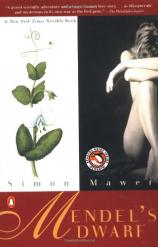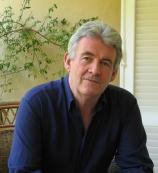Reading Group Guide
Discussion Questions
Mendel's Dwarf

1. Benedict Lambert, a brilliant, scholarly dwarf, is one of the most unusual leading characters ever presented in a work of fiction. What does he have in common with other fictional "heroes" and what qualities set him apart? Did you find it difficult to identify with him or sympathize with his problems?
2. Why does Ben so often react to the concern or sympathy expressed by others with biting sarcasm? Does it simply reflect his impatience with people who can never understand what life is like for a dwarf or is it a necessary survival tactic?
3.People congratulate Ben for "being brave," a comment he dismisses by saying "in order to be brave, you've got to have a choice." Do you think that Ben is not giving himself enough credit for his own accomplishments? Can you cite acts of courage Ben performs in his personal or professional life?
4.How do the attitudes of the dwarfs Ben interviews for his research differ from his own? Do you think their acceptance of and pride in their condition are more natural than Ben's cynicism and anger? Does Ben's obsession with his "aberration" prevent him from forming the emotional relationships that would bring him contentment and happiness?
5. Ben's ancestor Gregor Mendel defied his father by pursuing his education rather than working on the family farm. After his ordination, he proved unfit for work as a parish priest and failed his teaching exam. How do the barriers and difficulties Mendel faced compare to the ones Ben faces? Did Mendel, living in a nineteenth-century, class-based society, have fewer choices than Ben?
6. What do Mendel's discussions with the friars who doubt the importance of his work reveal about society's reaction to unconventional people and ideas? Why do you think the author includes so much detail about Mendel's work? Does the information about Mendel's experiments add or subtract from the book?
7. Mendel spent his life in a monastery, yet Ben finds that "epistolary evidence points to a priest who has managed a remarkable separation of faith from daily life." [p. 171] Do you think it is necessary for scientists to make this separation? Ben himself rejects the idea of a merciful, personal God, because "it's a bit difficult to believe that a loving God could do this to me." Do you think Ben's work in genetics enabled him, in his words, to "call God's bluff"? Do you share Jean's belief that even if DNA is the message that determines who we are, science cannot explain the essential question of who wrote the message and gave it meaning?
8.The question of whether our characteristics, good and bad, are the result of nature or nurture is hotly debated today. Do you think qualities like intelligence or musical talent are natural (inevitably determined by genetics) or can they be nurtured by creating a positive environment? Did Mendel's Dwarf change your assumptions, and if so, how?
9.Do you think Jean's decision to have Ben's child once she knew it could be "normal" was selfish or justifiable? Was she right to deceive her husband in order to have a child? Is her desire to carry on Ben's "good genes" an expression of her love for him? Do you think Ben was tempted to pass his genetic defect to an offspring? Why did he select the "normal" embryo in the end?
10.Was Ben right in telling Jean's husband the truth about the baby after its birth? Was he motivated solely by a desire for revenge against Hugo Miller, Jean's boorish husband? Do you think he would have kept silent if Jean had not fallen into a coma? In your opinion, is he responsible for the ultimate fate of the child?
11. Mendel's Dwarf raises many moral and ethical questions about the contemporary use of genetic studies—including such things as in vitro fertilization, population screening, embryo selection, and gene therapy. Do you think genetic research represents a dangerous attempt by man to "play God"? Do you think it can lead to evils equal to those perpetrated by the Nazis who used eugenics as the basis of the Holocaust? What would our world be like if we destroyed embryos on the basis of inherited abnormalities?
Mendel's Dwarf
- Publication Date: July 1, 1999
- Paperback: 336 pages
- Publisher: Penguin (Non-Classics)
- ISBN-10: 014028155X
- ISBN-13: 9780140281552







